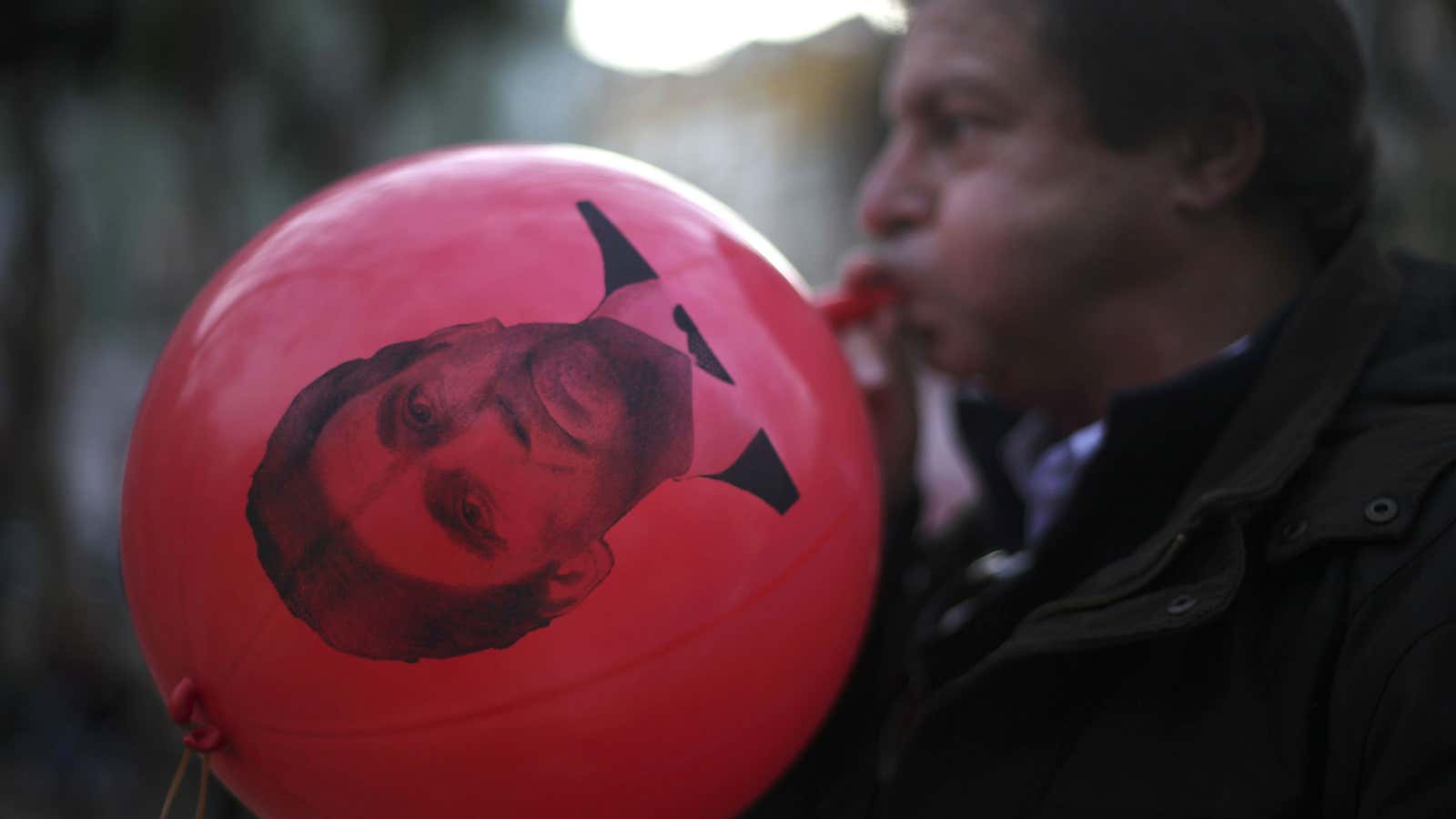Portugal expects its economy to shrink 2% in 2013—a much uglier outlook than the 1% contraction that it had previously estimated for the year. One of the earliest countries to be bailed out after the financial crisis, Portugal is now mired in the deepest economic slump since 1975. Today’s news signals that 2013 is a likely addition to two years of steady recession the country has suffered already.
Why the grim revision? Álvaro Santos Pereira, the economic minister, blamed the crummy economies of its neighbors. “Because Europe is in crisis and many European countries are suffering a recession, and over 70% of Portuguese exports go to Europe, it’s natural that there was a significant impact,” he said last week, according to financial daily Diário Económico.
Regardless of the cause, today’s update tarnishes Portugal’s image as a poster child for austerity’s success in helping it make its economy competitive. The country accepted deep budget cuts as a condition of a bail-out by the European Union and the International Monetary Fund in 2011. Just last month, the IMF said Portugal has made “considerable progress” (paywall) toward a return to international debt markets and that “the authorities’ policy reform and efforts have been impressive.”
“Effort” is the operative word. Lisbon has ambitiously passed austerity-guided reforms, such as a 5% cut in public salaries, a 2% increase in value-added tax, as well as a tax on year-end bonuses.
The result? Low domestic consumption, combined with weak external demand for the country’s exports, squelched the economy by a much-more-than-expected 3.2% in 2012; it shrank by 1.6% in 2011 after growing 1.3% in 2010. As unemployment hovered around 16%, Portugal claimed the title of worst-performing economy of all the euro zone countries last quarter. And as we all know, that’s really saying something.
Continued low output and withering domestic consumption will make it harder for Portugal to exit the bailout program in 2014, as is currently scheduled. In order to do so, Portugal must cut its budget deficit to 4.5% of GDP, from 5% in 2012. Income tax hikes (paywall) in effect since January 1—which opponents have called everything from “armed robbery” to “tax napalm” for their impact on citizens—will raise the average tax rate to 13.2% from 9.8%. If government finances worsen, Portugal’s lenders (the “troika” of the European Commission, the European Central Bank and the IMF) could demand more spending reductions in compensation.
Finance minister Vitor Gaspar said today that Portugal would officially confirm the new projection in the next week, during a quarterly review of its bailout.
